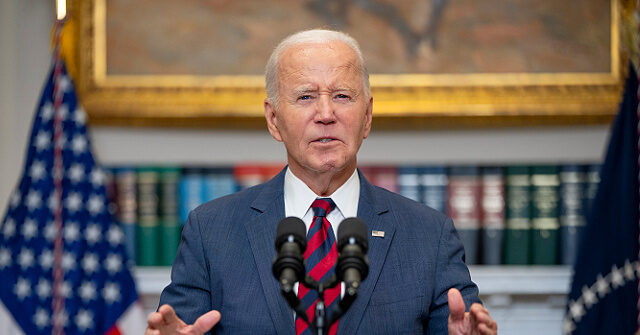On a recent episode of Bloomberg’s “Balance of Power,” Jared Bernstein, the Chair of the White House Council of Economic Advisers, discussed the recent uptick in bond market and mortgage interest rates. He attributed part of this increase to the improved economic conditions under President Joe Biden’s administration, noting that the annualized GDP growth has exceeded 3%, indicating robust economic performance. Bernstein emphasized that although strong growth and a solid labor market are responsible for some pressure on interest rates, the situation is also influenced by certain proposed policies that may negatively affect economic stability.
Bernstein highlighted that the current economic landscape has resulted in improved real wages and income gains, alongside easing prices, all contributing to a favorable environment for growth. However, he suggested that political discourse, particularly from certain candidates proposing significant tariffs and deportations, could be a cause for increasing uncertainty in the bond market. This could push rates higher as these proposals are perceived to potentially harm the middle class and labor market conditions. His remarks suggest that political rhetoric is not just an abstract concern but has tangible implications on economic indicators like interest rates.
The economic growth under President Biden is presented as a foundation for financial stability, yet Bernstein’s insights reveal an underlying tension between economic progress and political challenges. The mention of “massive tariffs” aligns with concerns that such actions would function as indirect taxes on consumers, raising overall costs and complicating the purchasing power of the middle class. Bernstein argues that these considerations play a role in the current economic outlook and contribute to the upward trajectory of interest rates.
Furthermore, Bernstein pointed to the importance of Federal Reserve independence as a stabilizing factor in the economy. Compromising the autonomy of the Federal Reserve could introduce volatility into the financial markets, which might amplify concerns among investors regarding future monetary policy and economic growth. Bernstein strongly suggests that the interplay between economic indicators and political strategies will continue to influence market behaviors and interest rate decisions, urging caution regarding potentially harmful policy proposals.
The complexities of the current economic situation illustrate that while there are signs of growth, the potential disruptions posed by political actions bear careful observation. Bernstein’s assertions not only provide a glimpse into the current economic state under Biden’s leadership but also emphasize the importance of mindful political engagement. Economic achievements could be undermined by divisive policies that may turn public sentiment against market stability, raising concerns about how emerging risks could adversely affect financial conditions across the nation.
In conclusion, while President Biden’s tenure has been characterized by significant economic growth that has led to increases in interest rates, it is essential to consider the broader implications of proposed policy changes on these trends. Bernstein’s analysis excites the need for a balanced approach in policymaking—one that fosters growth while minimizing potential risks from aggressive tariffs or compromise of the Federal Reserve’s independence. Understanding the intricate relationship between economic policies and market dynamics is crucial for shaping a sustainable and equitable economic future.

